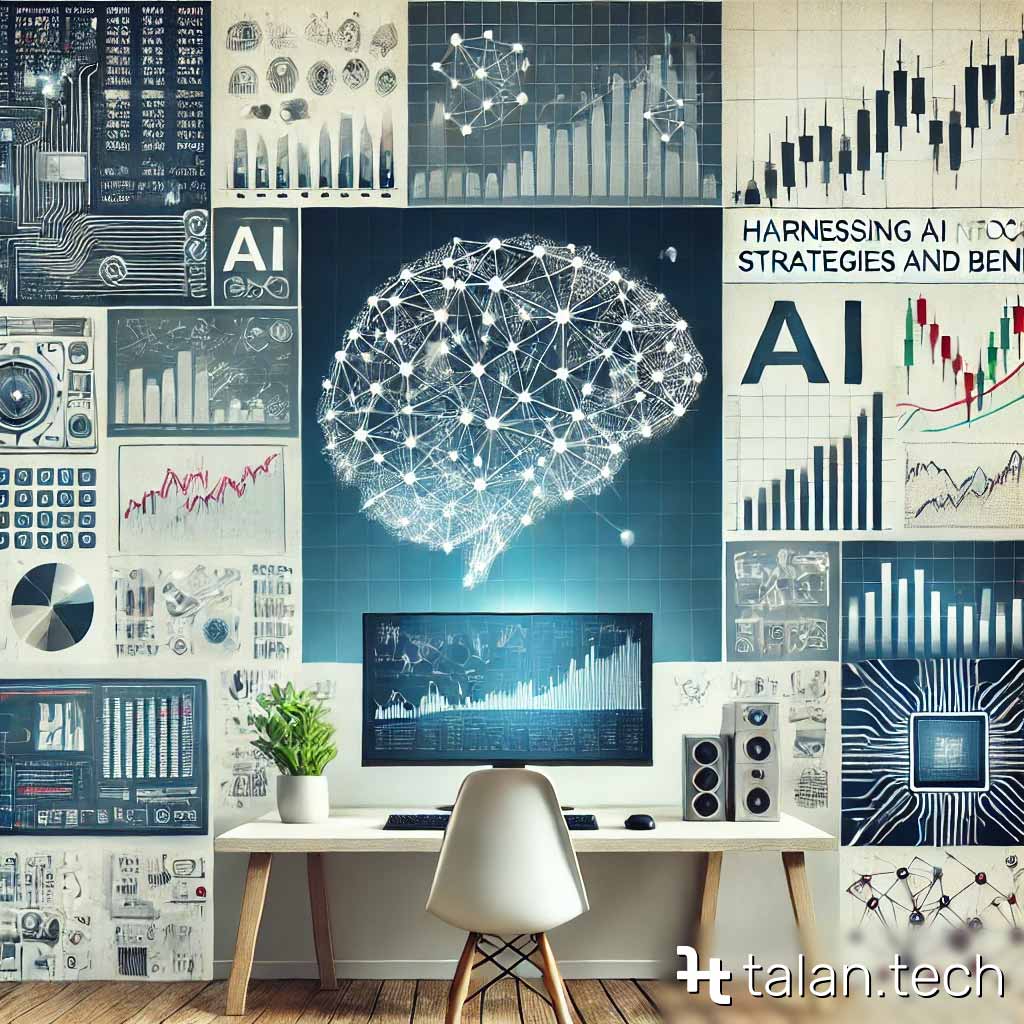Introduction
AI is transforming numerous industries, and stock trading is no exception. The integration of AI in stock trading has revolutionized the way traders analyze markets, make decisions, and execute trades. This article explores the strategies and benefits of AI in stock trading, shedding light on how this technology is reshaping the financial markets.
What is AI Stock Trading?
AI stock trading refers to the use of artificial intelligence technologies to analyze financial data, predict market trends, and execute trades. These systems leverage machine learning algorithms, natural language processing, and advanced data analytics to provide traders with insights and automated trading capabilities.
Key Strategies in AI Stock Trading
- Algorithmic Trading
Algorithmic trading, or algo trading, uses pre-programmed algorithms to execute trades at high speeds and volumes. These algorithms can analyze multiple market variables simultaneously, allowing for precise and rapid decision-making.
- High-Frequency Trading (HFT): A subset of algorithmic trading that involves executing a large number of orders at extremely high speeds. HFT firms use sophisticated algorithms and high-speed data networks to capitalize on small price discrepancies.
- Machine Learning Models
Machine learning models are used to predict future price movements based on historical data. These models can identify patterns and correlations that are not apparent to human traders.
- Supervised Learning: Involves training a model on a labeled dataset, where the desired output is known. This approach is used to predict stock prices based on historical data.
- Unsupervised Learning: Uses unlabeled data to find hidden patterns and relationships. This can be useful for identifying market anomalies or clustering similar stocks.
- Natural Language Processing (NLP)
NLP algorithms analyze news articles, social media posts, and financial reports to gauge market sentiment and predict market movements. By processing large volumes of text data, NLP can provide insights into market sentiment that influence stock prices.
- Reinforcement Learning
Reinforcement learning involves training an AI agent to make decisions through trial and error, using feedback from its actions to improve its strategy over time. This approach is particularly useful for developing trading strategies that adapt to changing market conditions.
Benefits of AI in Stock Trading
- Improved Accuracy
AI models can analyze vast amounts of data and identify patterns that human traders might miss. This leads to more accurate predictions and better trading decisions.
- Speed and Efficiency
AI systems can process data and execute trades at speeds far beyond human capabilities. This is especially beneficial in high-frequency trading, where milliseconds can make a difference.
- Reduced Emotional Bias
Human traders are often influenced by emotions, which can lead to irrational decisions. AI systems are devoid of emotions, making decisions based purely on data and logic.
- Continuous Learning
AI models can continuously learn and adapt to new data, improving their performance over time. This is particularly useful in dynamic markets where conditions change rapidly.
- Cost Savings
Automating trading processes with AI can reduce the need for human traders, leading to significant cost savings for trading firms.
Challenges and Considerations
While AI trading offers significant benefits, it also presents certain challenges:
- Data Quality: The effectiveness of AI systems depends on the quality and accuracy of the data they are trained on.
- Market Volatility: Sudden market changes can impact the performance of AI trading algorithms, requiring continuous adaptation and learning.
- Regulatory Compliance: Financial markets are heavily regulated, and AI trading systems must comply with all relevant laws and regulations.
- Ethical Concerns: The use of AI in trading raises ethical questions about market fairness and the potential for manipulation.
Current Trends and Usage
AI in stock trading is becoming increasingly popular, with major financial institutions and hedge funds investing heavily in AI technologies. The technology is used for various purposes, including:
- Predictive Analytics: Forecasting future market trends and stock prices.
- Sentiment Analysis: Gauging market sentiment from news and social media.
- Risk Management: Identifying and mitigating potential risks.
- Automated Trading Systems: Developing fully automated trading platforms.
Conclusion
AI is revolutionizing the stock trading industry by providing traders with powerful tools for data analysis, prediction, and automated execution. The benefits outlined in this article demonstrate the significant impact of AI on financial markets. As AI technology continues to evolve, its role in stock trading is expected to grow, offering even more sophisticated and efficient trading solutions.





